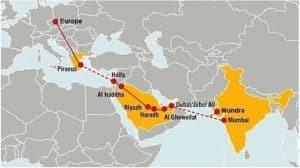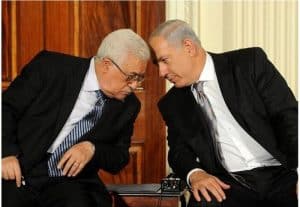PNN – The Zionist regime, as a political entity in the modern international system, and considering its special requirements, including the crisis of legitimacy, being an occupier, and having the problem of a cultural gap inside and the security problem outside, since its establishment, has tried to follow complex doctrines in the foreign policy scene. These doctrines are the result of many studies and investigations in Zionist think tanks.
The global space is the space of communication and interactions. Therefore, its constituent units must interact with each other to provide their own needs and those of others. In a simple definition, foreign policy is having a plan and a goal to achieve the same thing. Political units in the international system usually design special plans to formulate their foreign policy and achieve maximum benefit in this direction.
The occurrence of Al-Aqsa storm on the 7th of October 2023 can be seen as a straw on the fire of Israel’s foreign policy. This operation was able to face the problem of years of planning and the exorbitant costs of this regime to advance its goals.
Israel’s foreign policy plans before October 7
By studying and analyzing the foreign policy documents of the Zionist regime and taking a long-term look at the actions of this regime, we come across important principles in the foreign policy of this regime, which include “legitimization”, “providing security and coalition building” and “creating dependence and influence”. According to these principles, Israel has designed and implemented various doctrines from 1948 until today, the common point of which is to achieve these three principles.
Read more:
Brazilian students also joined the global demonstrations in support of Palestine
Before the Al-Aqsa storm operation and with Netanyahu taking office, the following items were on the agenda in Israel’s foreign policy:
A) Creating a global consensus along with Israel’s plans and reducing international tensions against Israel.
B) downplaying the Palestinian component in the world and creating dependence and alliance with different countries under which the normalization of relations with neighboring and Muslim countries is proposed.
C) Direct damage to the command center of the resistance front, i.e. Iran, instead of fighting with other elements of this front under the doctrine of dealing with the head of the octopus.
D) Increasing the cost of tension with the Israeli regime through the creation of corridors centered on the occupied territories and increasing the security and legitimacy factor from this path.
In addition to these cases, US President Joe Biden, whose country is the most important ally and supporter of Israel, states four general goals for West Asia centered on Israel, which include:
(1) neutralizing Iran’s harmful activities in the region and Tehran’s proxy forces
(2) advancing the creation of a civilian Palestinian state in the West Bank and Gaza Strip, and ensuring that there is no threat to Israel;
(3) forming a security alliance with Saudi Arabia and other countries in the region, much of which will be achieved by normalizing relations between the Kingdom and Israel
(4) promoting economic development and prosperity throughout the West, including infrastructure and trade from India to Europe, operationalized by Israeli technology, American thought, Arab investment, and Indian labor.
Normalizing relations with Islamic countries
Various plans such as peripheral unity and peace against the land of Israel were the beginning of the compromise plan that gradually affected the Islamic countries and gave the Zionist regime a chance to grow and develop. This path started in 1979 at Camp David and the peace between Egypt and Israel; Then, in 1994, he reached Wadi Araba and forced Jordan to compromise; After that, it was followed in economic dimensions with Turkey, and in Pesto, communication with the rulers of the Persian Gulf was whispered. Finally, in 2020, the curtains were removed and the news of Israel’s normalization with the UAE, Bahrain and Morocco was officially announced. Of course, it should be mentioned here that some Islamic countries, such as the Republic of Azerbaijan, agreed to a relationship with the Zionists much earlier.

In October 2023, the media reported a special event. This special event and, in a word, a news bomb, was the nearness of Saudi Arabia joining the train of normalizing relations with Israel. Saudi Arabia, which has a special status in the Islamic world, and the normalization of relations between this country and Israel, may have allowed other smaller Islamic countries to enter this treaty. Of course, it should be noted that unofficial sources have always emphasized the secret relationship between Saudi Arabia and Israel during these years, but in any case, its formalization and normalization could have a more special meaning.
The saga of the Palestinian resistance in the Gaza Strip and the surprise planning of the Al-Aqsa storm operation blew all the plans. The breaking of the Zionist regime and the brutality caused by the severity of the blow of the Palestinian resistance stopped the normalization train. It should even be mentioned that it caused widespread protests in the compromise countries to cut ties with Israel; As we saw massive protests in Jordan and Morocco. Bahrain and Turkey have recently cut off economic relations with Israel due to increased pressure. (The volume of economic relations between Türkiye and Israel is nearly 9.5 billion dollars per year)
The design of corridors
As mentioned, the Zionist regime is trying to create the role of a gateway for itself by presenting itself as the bottleneck of the three continents of Europe, Africa and Asia, in order to create economic prosperity for itself; Second, it cannot be removed by creating dependence for others and at least provide political legitimacy for itself through the lens of economy.
The large investment of the Zionists with the support of the United States in this field was able to attract the eyes of the Arab compromising countries towards Israel, and therefore the infrastructure for the realization of this goal of Israel was being provided. The reappearance of the Ben-Gurion Canal and the Arab-Med Corridor, which was left out of the “I2U2” plan, was in line with Israel’s foreign goal, and the Al-Aqsa storm could cause problems in both of these cases.

Ben Gurin channel
The Ben Gurion Canal, which was designed in the late 1960s, sought to create an alternative route to the Suez Canal, which was the main maritime transport route in the Middle East and could connect Europe and Asia. This waterway starts from the city of Eilat on the southern coast of the occupied territories on the shores of the Gulf of Aqaba (water border with Jordan) and reaches the Mediterranean from the northern borders of the Gaza Strip.
In this way, the Ben-Gurin Canal will connect the Red Sea and the Mediterranean Sea. The Gaza Strip is located next to the Ben Gurin Canal; Therefore, the absence of tension in this area with Israel is a necessary condition for the realization of this channel. The Battle of al-Aqsa storm and the heavy blow of the Palestinian resistance to the Israeli regime made the dream of creating this channel far from the minds.
Group I2U2
The I2U2 group, consisting of the United States, Israel, India, and the United Arab Emirates, emerged in West Asia as a new alliance. The traces of this alliance can be seen in the Ibrahim agreement (normalization of relations), which was the beginning of the historic agreement between Israel and the UAE.
The stated goal of this group is to create an ideal international platform for economic development. This group initially focuses on infrastructure, transportation and maritime security and is limited to West Asia. Regarding the reasons for the formation of this alliance, there are various debates, among them are to deal with China’s economic growth and to deal with Russia’s influence in this region and to reduce Europe’s dependence on Russia.
Trying to prevent the increase of Iranian influence
Establishing security stability and preventing the increase of Iran’s influence in the region is one of the constant plans in Israel’s foreign policy. After Naftali Bennett proposed the doctrine of attacking the head of the octopus during his tenure as the Ministry of War, the level of conflict between Iran and Israel changed. In this doctrine, the effort is to confront Iran itself, instead of confronting the forces of Hezbollah, the Syrian resistance, and even the Islamic Jihad and Hamas as the Palestinian resistance, which in the definition of the Zionists are the arms of Iran; Therefore, it can be seen that after Bennett’s prime ministership and even after him by “Yair Lapid” and “Benjamin Netanyahu” direct attacks on the forces of the Iranian adviser in Syria and even inside Iran are proposed. In this regard, Israel is trying to create an axis of resistance against Iran by infiltrating the countries of the Caucasus, the Persian Gulf region, and even Central Asia.
Destroying Hamas and empowering the self-governing organizations
After the establishment of the Oslo Accords in 1993 and the emergence of a process of reconciliation between the Palestinians following the PLO and Fatah, which resulted in nothing but humiliation and humiliation for the Palestinians, one of Israel’s hopes was always to give controlled power to the Palestinian Authority in order to have a Palestinian arm in to create Palestine for himself.

Hasborah and public diplomacy
The final and important part that we should mention is public diplomacy as one of the tools of Israel’s foreign policy, which is ironically a very important part in this field. The Ministry of Hasborah, which is an independent ministry due to the importance of public diplomacy and the image of Israel outside the occupied territories, is trying to convey a favorable image of Israel to the world every year at great expense. This depiction is aimed at legitimizing the support of this fake regime in various political, economic and military fields.
The 7th of October war disrupted this attitude and plan. The first direction of this disturbance was the costs of the war itself. According to Yediot Aharanot newspaper, the latest estimates indicate a loss of 5 to 7 billion shekels in the areas bordering Lebanon and a loss of 15 to 20 billion shekels in the Zionist areas and settlements adjacent to the Gaza Strip. This means that with the continuation of the war and the increase of expenses, the budget allocation for this ministry will be placed in the next priorities.
The second direction is the reverse migration wave that covers the occupied territories from north to south; One of the goals of the Diaspora was to bring the world’s Jews to the occupied territories, which this war has completely disrupted.
The third direction, which may be more important than the others, is the destruction of Israel’s face in the world; That is, if before this hatred of Israel was more in the eyes of Muslims, today, from China and Japan to Africa, Europe and South America, governments and people are against Israel’s policies.

